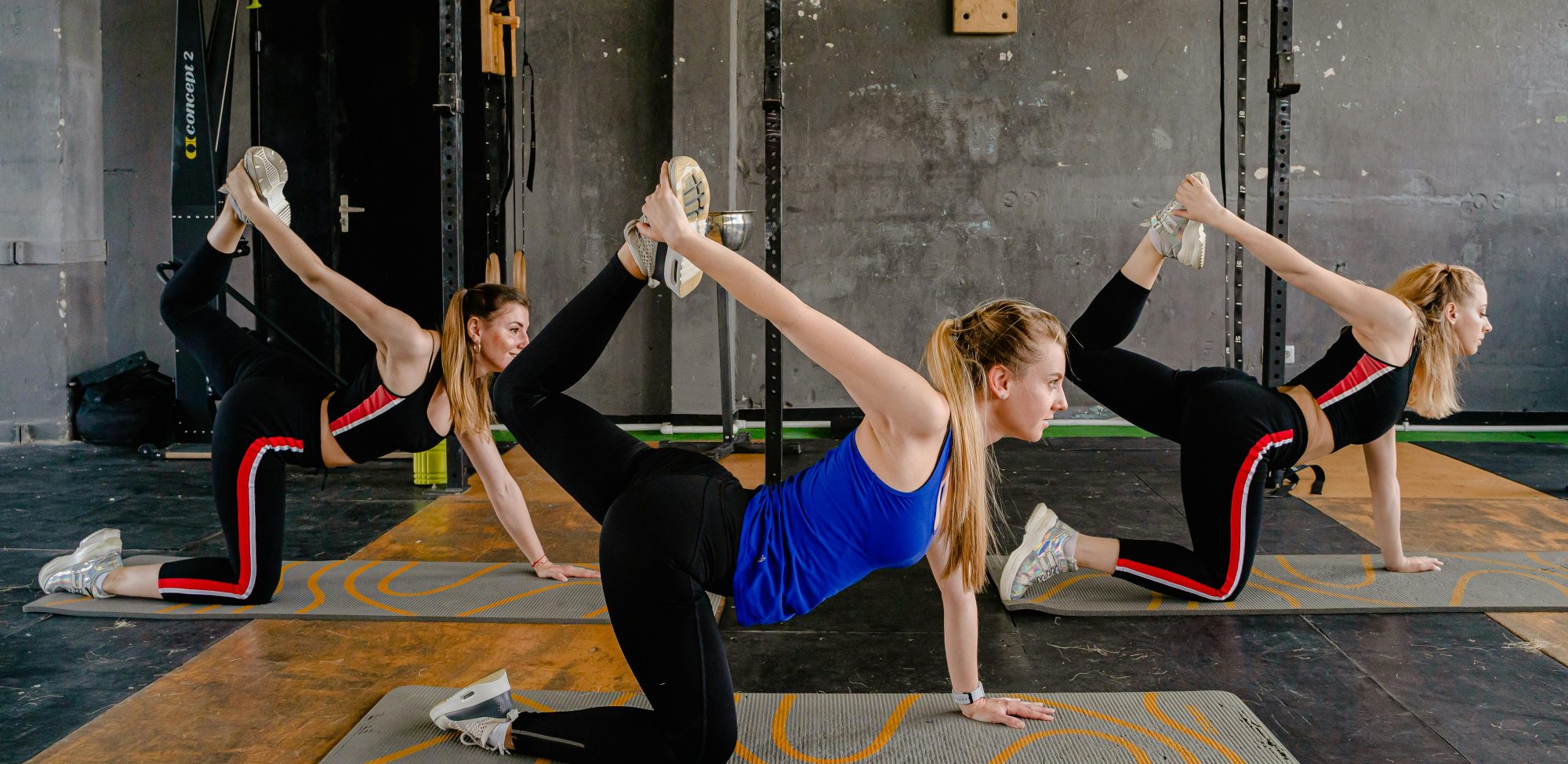Sports and Mental Health: Transformative Benefits That Will Revolutionize Your Life Quality in 2025

Sports and Mental Health: Transformative Benefits That Will Revolutionize Your Life Quality in 2025.
Living in our demanding modern world requires more than just surviving – it demands thriving. The revolutionary connection between sports and mental health has emerged as one of the most powerful tools for achieving optimal well-being. This comprehensive exploration reveals how physical activity transforms not just our bodies, but fundamentally reshapes our mental landscape, creating lasting positive changes that ripple through every aspect of our lives.
The profound relationship between physical movement and psychological wellness isn’t just theory – it’s backed by decades of scientific research and countless personal success stories. When we understand how sports and mental health work together, we unlock the potential for extraordinary life transformation.

The Science Behind Sports and Mental Health Connection
Neurobiological Transformation Through Movement
The human brain undergoes remarkable changes during physical activity. When we engage in sports, our bodies initiate a complex cascade of neurochemical reactions that directly impact our mental state. This biological symphony is central to understanding sports and mental health benefits.
During exercise, the brain releases powerful mood-enhancing chemicals including endorphins, dopamine, serotonin, and norepinephrine. These neurotransmitters work together to create what researchers call the “exercise high” – a natural antidepressant effect that can last for hours after physical activity ends.
Research published in leading neuroscience journals demonstrates that regular physical activity increases BDNF (Brain-Derived Neurotrophic Factor), a protein that promotes the growth of new neural connections. This neuroplasticity enhancement is crucial for learning, memory, and emotional regulation – core components of sports and mental health optimization.
Stress Hormone Regulation
One of the most significant benefits of regular physical activity is its ability to regulate cortisol, our primary stress hormone. Chronic elevation of cortisol leads to anxiety, depression, cognitive impairment, and numerous physical health problems. Sports activities provide a natural mechanism for cortisol reduction, making sports and mental health an effective intervention for stress management.
Studies show that individuals who participate in regular physical activity have lower baseline cortisol levels and recover more quickly from stressful situations. This improved stress resilience becomes a foundation for better mental health outcomes across all life domains.
Physical Health Benefits That Amplify Mental Wellness
Cardiovascular Excellence and Cognitive Enhancement
The cardiovascular benefits of sports extend far beyond heart health. Improved circulation delivers more oxygen and nutrients to the brain, directly supporting cognitive function and mental clarity. This physiological improvement is a cornerstone of sports and mental health synergy.
Regular aerobic exercise has been shown to:
- Increase hippocampal volume, improving memory formation
- Enhance executive function and decision-making abilities
- Boost processing speed and attention span
- Reduce inflammation markers associated with depression
Strength Training and Confidence Building
Resistance training and strength-building sports offer unique mental health benefits. The progressive nature of strength development creates measurable achievements that translate into improved self-efficacy and confidence. This psychological boost is an essential aspect of sports and mental health development.
Research indicates that individuals who engage in regular strength training report:
- Higher levels of self-esteem
- Reduced symptoms of anxiety and depression
- Improved body image and self-perception
- Greater sense of personal empowerment
Mental Health Benefits Through Sports Participation
Anxiety Reduction and Emotional Regulation
Sports provide a powerful outlet for managing anxiety and emotional volatility. The focused attention required during physical activity creates a form of moving meditation, interrupting anxious thought patterns and providing mental relief. This therapeutic aspect of sports and mental health makes physical activity an accessible intervention for anxiety management.
The rhythmic nature of many sports activities – running, swimming, cycling – activates the parasympathetic nervous system, promoting relaxation and emotional balance. Regular participants often report feeling more emotionally stable and better equipped to handle life’s challenges.
Depression Prevention and Treatment
Perhaps one of the most compelling aspects of sports and mental health research is the evidence for depression prevention and treatment. Multiple large-scale studies have demonstrated that regular physical activity can be as effective as antidepressant medications for treating mild to moderate depression.
The antidepressant effects of exercise include:
- Increased production of mood-regulating neurotransmitters
- Improved sleep quality and circadian rhythm regulation
- Enhanced sense of accomplishment and self-worth
- Social connection opportunities that combat isolation
Cognitive Enhancement and Brain Protection
Regular sports participation provides significant cognitive benefits that protect against age-related mental decline. The combination of physical movement, strategic thinking, and social interaction inherent in many sports creates an ideal environment for brain health optimization.
Key cognitive benefits include:
- Improved working memory and attention span
- Enhanced problem-solving abilities
- Better multitasking skills
- Reduced risk of dementia and cognitive decline
Social Connectivity and Community Building
Team Sports and Social Support Networks
The social dimension of sports and mental health cannot be overstated. Team sports create natural opportunities for building meaningful relationships, developing communication skills, and establishing support networks that extend far beyond the playing field.
Participants in team sports often experience:
- Stronger sense of belonging and community
- Improved social skills and emotional intelligence
- Reduced feelings of loneliness and isolation
- Enhanced ability to work collaboratively
Individual Sports and Personal Growth
While team sports offer social benefits, individual sports provide unique opportunities for personal development and self-discovery. The introspective nature of activities like running, swimming, or martial arts creates space for mental processing and emotional growth – important aspects of sports and mental health development.
Individual sports practitioners often report:
- Increased self-awareness and mindfulness
- Better stress management skills
- Enhanced mental toughness and resilience
- Improved ability to set and achieve personal goals
Practical Implementation Strategies
Choosing the Right Activity for Your Mental Health Goals
Selecting appropriate sports activities is crucial for maximizing sports and mental health benefits. Different activities offer varying advantages, and understanding these differences helps create personalized wellness plans.
For Anxiety Management:
- Yoga and tai chi for mindfulness and relaxation
- Swimming for rhythmic, meditative movement
- Walking or light jogging for gentle mood enhancement
For Depression Prevention:
- High-intensity interval training for endorphin release
- Team sports for social connection
- Outdoor activities for vitamin D and nature exposure
For Stress Reduction:
- Martial arts for focused attention and discipline
- Dancing for creative expression and joy
- Cycling for rhythmic movement and fresh air
Creating Sustainable Routines
The key to long-term sports and mental health benefits lies in creating sustainable, enjoyable routines. Rather than pursuing extreme fitness goals, focus on consistency and gradual progression.
Weekly Structure Recommendations:
- 3-4 days of moderate-intensity activities (30-45 minutes)
- 1-2 days of high-intensity training (20-30 minutes)
- 2-3 days of gentle movement or rest
- Include variety to prevent boredom and overuse injuries
Overcoming Common Barriers
Many people struggle to maintain regular physical activity due to various obstacles. Recognizing and addressing these barriers is essential for successful sports and mental health integration.
Time Constraints Solutions:
- Incorporate micro-workouts throughout the day
- Use active transportation when possible
- Combine exercise with social activities
- Prioritize high-intensity, shorter duration activities
Motivation Challenges:
- Set specific, measurable goals
- Track progress using technology
- Find accountability partners or groups
- Celebrate small victories and milestones

Technology Integration for Enhanced Results
Wearable Technology and Progress Tracking
Modern technology offers unprecedented opportunities to enhance sports and mental health outcomes through detailed tracking and analysis. Wearable devices provide real-time feedback on physical performance while also monitoring stress levels and recovery patterns.
Product Spotlight: Garmin Forerunner 265
For individuals serious about optimizing their sports and mental health journey, the Garmin Forerunner 265 represents cutting-edge technology in fitness tracking and health monitoring. This advanced GPS smartwatch goes beyond basic step counting to provide comprehensive insights into your physical and mental well-being.
Key Features for Sports and Mental Health:
- Advanced heart rate variability monitoring for stress assessment
- Sleep quality analysis with recovery recommendations
- Training readiness scores based on physiological markers
- Guided breathing exercises for stress management
- Multi-sport tracking with detailed performance metrics
- Smart notifications to maintain work-life balance
The Forerunner 265 features a brilliant AMOLED display, up to 13 days of battery life, and comprehensive training analysis that helps users understand the relationship between their physical activity and mental state. Its Body Battery energy monitoring provides insights into when you’re ready for intense training versus when you need recovery – a crucial aspect of sustainable sports and mental health practices.
Check out the Garmin Forerunner 265 on Amazon to take your fitness and wellness journey to the next level.
Apps and Digital Communities
Smartphone applications and online communities provide additional support for sports and mental health goals. These platforms offer guided workouts, meditation sessions, progress tracking, and social connectivity with like-minded individuals.
Popular categories include:
- Workout planning and tracking apps
- Mindfulness and meditation platforms
- Social fitness communities
- Virtual coaching and training programs
Special Populations and Considerations
Youth and Adolescent Mental Health
The importance of sports and mental health for young people cannot be overstated. During crucial developmental years, regular physical activity provides structure, builds confidence, and offers healthy coping mechanisms for stress and emotional challenges.
Benefits for youth include:
- Improved academic performance
- Better emotional regulation
- Reduced risk of anxiety and depression
- Enhanced social skills development
- Healthier lifestyle habit formation
Older Adults and Cognitive Protection
For older adults, the relationship between sports and mental health becomes even more critical as a protective factor against cognitive decline and depression. Age-appropriate physical activities can significantly improve quality of life and mental sharpness.
Recommended activities include:
- Low-impact aerobic exercises
- Balance and flexibility training
- Social sports like tennis or golf
- Water-based activities for joint protection
- Strength training with proper supervision
Mental Health Conditions and Exercise Prescription
Individuals with existing mental health conditions can particularly benefit from structured sports and mental health interventions. However, it’s important to work with healthcare providers to develop safe and effective exercise prescriptions.
Considerations include:
- Starting gradually with professional guidance
- Monitoring for overexertion or exercise addiction
- Combining physical activity with other treatments
- Choosing activities that feel enjoyable rather than punitive
Nutritional Support for Optimal Results
Fueling Mental and Physical Performance
The relationship between nutrition and sports and mental health is symbiotic. Proper nutrition supports both physical performance and mental clarity, while exercise improves nutrient utilization and metabolic health.
Key Nutritional Strategies:
- Omega-3 fatty acids for brain health and inflammation reduction
- Complex carbohydrates for sustained energy and mood stability
- Lean proteins for neurotransmitter production
- Antioxidant-rich foods for recovery and cognitive protection
- Adequate hydration for optimal brain function
Timing and Recovery Nutrition
Post-exercise nutrition plays a crucial role in maximizing sports and mental health benefits. The window immediately following physical activity is optimal for recovery nutrition that supports both muscle repair and neurotransmitter production.
Recovery Recommendations:
- Consume protein and carbohydrates within 30 minutes post-exercise
- Include anti-inflammatory foods to support recovery
- Maintain consistent meal timing to support circadian rhythms
- Consider magnesium and vitamin D supplementation if deficient
Sleep and Recovery Optimization
The Sleep-Exercise-Mental Health Triangle
Quality sleep is fundamental to realizing the full benefits of sports and mental health practices. Exercise improves sleep quality, while adequate sleep enhances exercise performance and mental health outcomes.
Sleep Optimization Strategies:
- Maintain consistent sleep and wake times
- Create a cool, dark sleeping environment
- Avoid intense exercise within 3 hours of bedtime
- Use relaxation techniques before sleep
- Limit screen time in the evening
Active Recovery and Mental Processing
Recovery days are not passive rest days but opportunities for gentle movement that supports mental processing and stress relief. Active recovery is an important component of comprehensive sports and mental health programming.
Active Recovery Options:
- Gentle yoga or stretching
- Leisurely walks in nature
- Swimming at low intensity
- Meditation or breathing exercises
- Light household or garden activities
Building Long-term Success
Lifestyle Integration Strategies
True success in sports and mental health comes from viewing physical activity as an integral part of life rather than an additional burden. This perspective shift is crucial for long-term adherence and benefit realization.
Integration Approaches:
- Connect exercise to existing routines and responsibilities
- Choose activities that align with personal interests and values
- Build flexibility into plans to accommodate life changes
- Focus on how physical activity makes you feel rather than just appearance
- Celebrate process improvements rather than just outcome goals
Community and Support Systems
Building strong support systems amplifies sports and mental health benefits and increases the likelihood of long-term success. Communities provide accountability, motivation, and shared experiences that enrich the journey.
Community Building Ideas:
- Join local sports clubs or fitness groups
- Participate in charity runs or events
- Find workout partners with similar goals
- Engage with online fitness communities
- Share your journey to inspire others
Measuring Progress and Celebrating Success
Tracking progress in sports and mental health requires looking beyond just physical metrics to include psychological and social indicators of improvement.
Comprehensive Progress Indicators:
- Physical fitness improvements
- Mood and energy level changes
- Sleep quality enhancements
- Stress management improvements
- Social connection increases
- Confidence and self-efficacy growth
Future Directions and Emerging Research
Personalized Medicine and Exercise Prescription
The future of sports and mental health lies in personalized approaches that consider individual genetics, preferences, and health histories. Emerging research in exercise genomics and precision medicine promises more targeted interventions.
Virtual Reality and Immersive Experiences
Technology continues to expand possibilities for engaging sports and mental health experiences. Virtual reality fitness programs, augmented reality training, and gamified exercise platforms are making physical activity more accessible and enjoyable.
Mental Health Integration in Sports Medicine
The growing recognition of sports and mental health connections is leading to more integrated approaches in sports medicine and fitness industries. This holistic perspective benefits both recreational exercisers and elite athletes.

Conclusion: Embracing Your Transformation Journey
The evidence is overwhelming: sports and mental health represent one of the most powerful combinations for enhancing human well-being. From the neurobiological changes that occur with regular physical activity to the social connections formed through sports participation, the benefits extend far beyond what many people realize.
Your journey toward improved sports and mental health doesn’t require extreme measures or perfect conditions. It begins with a single step, a commitment to movement, and an understanding that every bit of physical activity contributes to your mental wellness. Whether you choose team sports for social connection, individual activities for personal growth, or a combination of both, the key is consistency and enjoyment.
The research is clear, the tools are available, and the community support exists. With devices like the Garmin Forerunner 265 to track your progress and countless resources to guide your journey, there has never been a better time to prioritize sports and mental health in your life.
Remember that this journey is uniquely yours. What matters most is not comparing yourself to others but celebrating your own progress and the positive changes you experience. Every workout completed, every team practice attended, and every moment of movement is an investment in your mental health and overall quality of life.
Start today. Your future self – physically stronger, mentally resilient, and emotionally balanced – is waiting for you to take that first step. The transformative power of sports and mental health is within your reach, ready to revolutionize your life in ways you never imagined possible.
The path to optimal well-being through sports and mental health is not just about adding years to your life – it’s about adding life to your years. Embrace the journey, trust the process, and discover the incredible person you’re meant to become through the power of movement and mental wellness.

